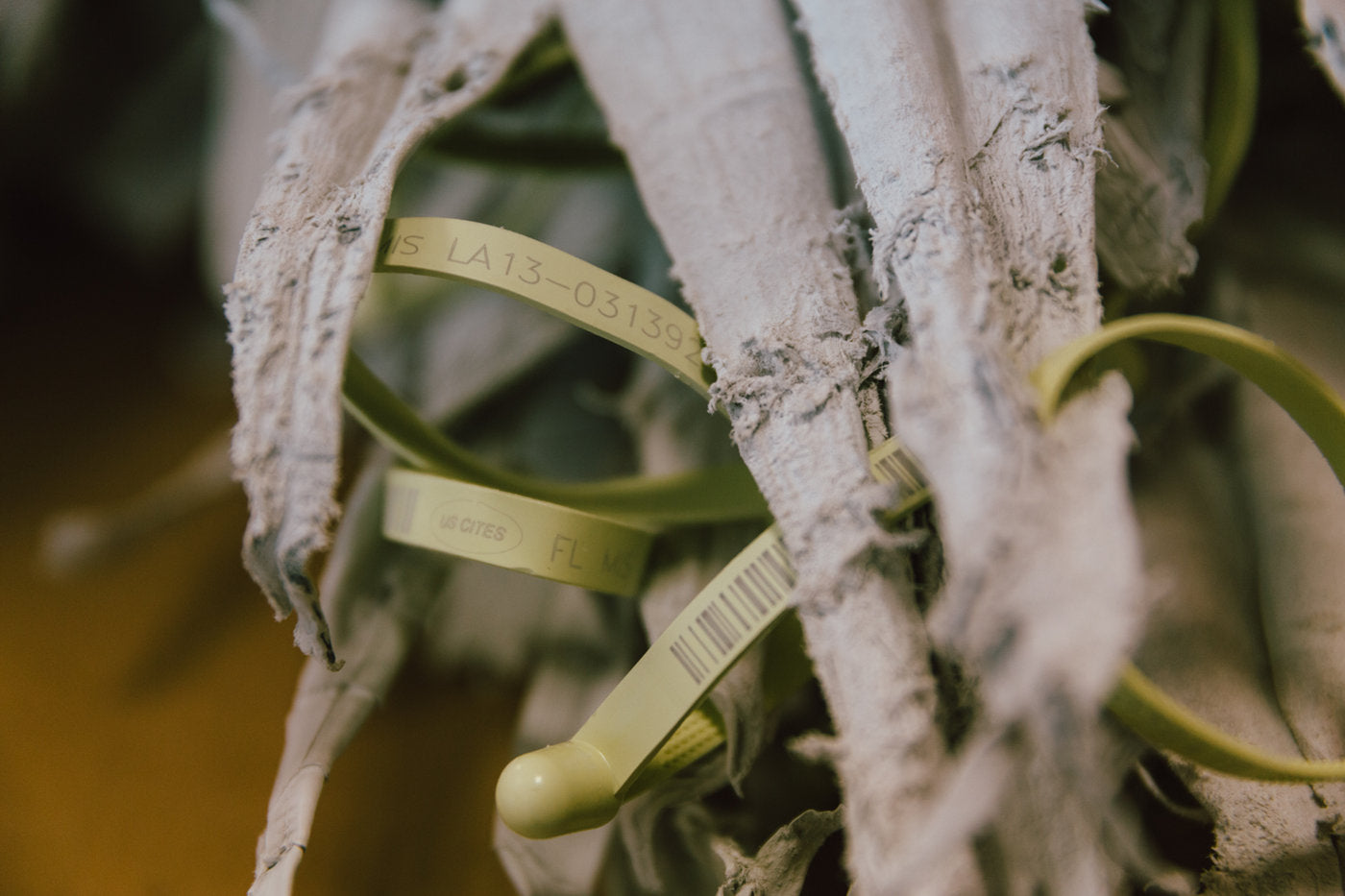
Sustainability & Responsibility
Our Guarantee and Conservation Commitment
Each and every skin tanned by American Tanning & Leather LLC is harvested legally and in accordance with all state, federal, and international wildlife regulations. We never buy, sell, or promote any endangered species of crocodile or alligator, and it is our promise to exclusively provide clients with luxury leathers that are from sustainable and ethically sourced raw materials.
The CITES tag on each skin guarantees that your product is part of a sustainable use program which benefits both people and wildlife. The use of alligator and crocodile products protects the traditions and cultures of a community dependent upon renewable natural resources for economic sustainability.
We pledge to conserve crocodilians and their habitats by strictly following CITES Treaty regulations worldwide.
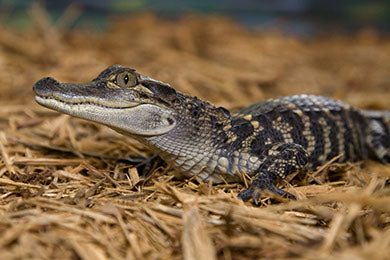
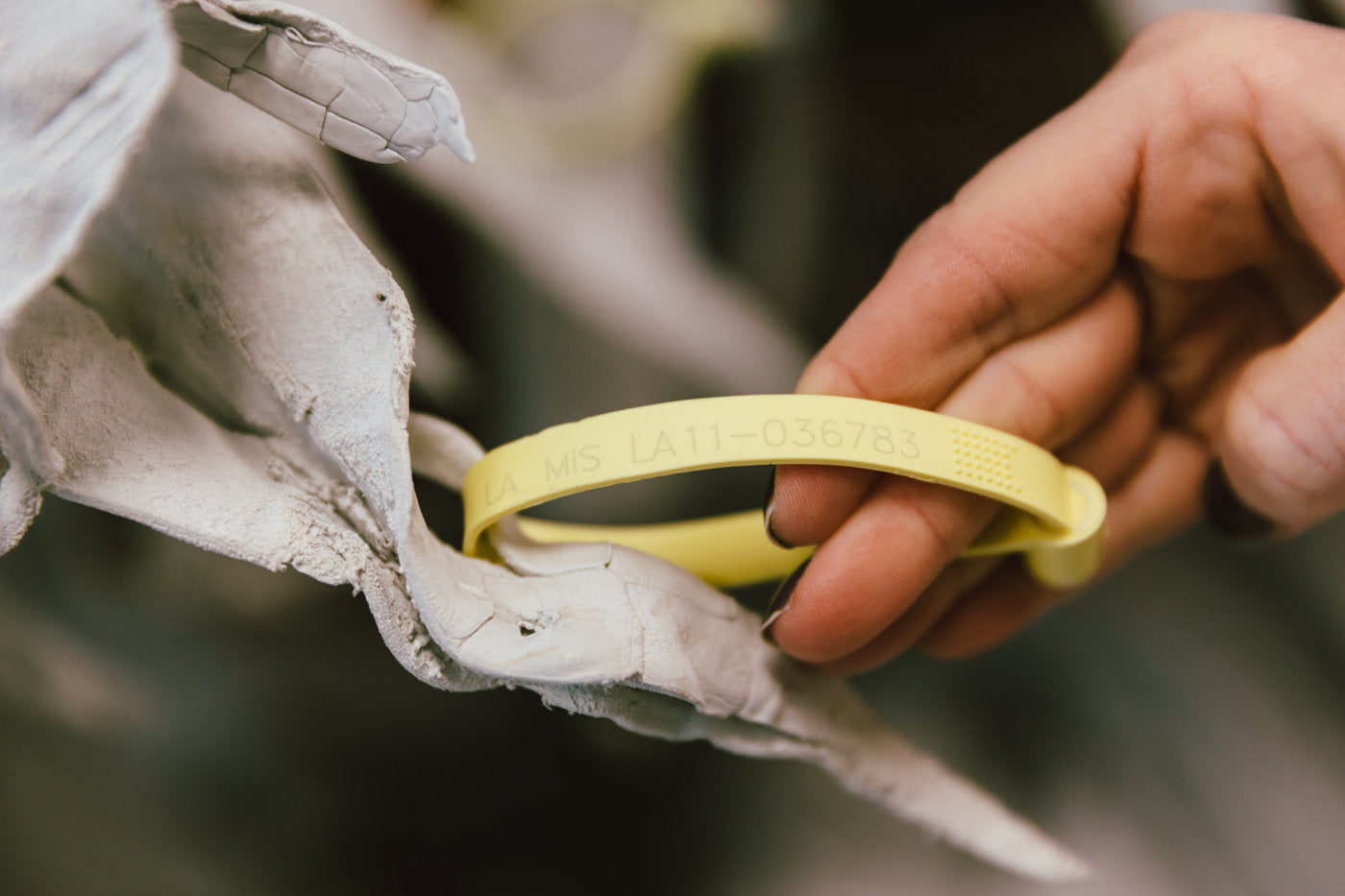
Sustainable Use
Alligators nest in the coastal wetlands of the United States. Southern Louisiana contains 40 to 45 percent of the wetlands found in the lower states, and nearly all the land is privately owned.
Alligators are a strong and viable species; however the nests and the alligator eggs and babies are naturally vulnerable and most succumb to predation in the wild marsh before reaching a breeding age to help maintain the population.
Landowners can sell the rights to their alligator nest eggs on their property each year to Alligator farmers and ranchers. The farmers receive permits to collect the eggs from the wild nests, transport the eggs to their farms, and hatch the baby alligators.
Once the baby alligators hatch, the farmers raise them to approximately 3 feet in length. Alligators are far less susceptible to predation at this size, so the farmers release 10% of the hatched alligators on to the original tract of land from which they came.
The land owner has a financial incentive to leave his real estate undeveloped since he has been paid for the alligator eggs and his alligator population is kept intact by the 10% re-release.
The farmer has a profit center selling meat and skins. His incentive to maintain his inventory and replenish stock on his farm each year is motivation to protect the species.
The farmer pays a $4.25 per tag severance tax to the State of Louisiana. This tag fee goes into a special fund which pays for Louisiana Department of Wildlife and fisheries staff, biologists, and other costs related to management of the alligator program. It is the only government program in Louisiana which is completely funded by the trade and not funded by taxpayer dollars.
Habitat Protected. Species Protected. Jobs Provided.
This is the heart of the Sustainable Use Program, and the American alligator program is touted as a worldwide model for wildlife conservation.
CITES
-
What is CITES?
The Convention on the International Trade of Endangered Species (CITES) is an international agreement between governments. Its aim is to ensure that trade in specimens of animals and plants does not threaten their survival. Many commercially traded wildlife species are not endangered, but the existence of an agreement to ensure the sustainability of the trade is important in order to safeguard these resources for the future.
-
Why are alligators regulated by CITES?
Visit CITES OnlineAmerican alligators are not threatened or endangered, but they are on the list of species controlled by CITES due to similarity in appearance to other threatened or endangered crocodiles and alligators.
The United States Fish and Wildlife Service (USFWS) oversees all CITES permitting and compliance in the United States.
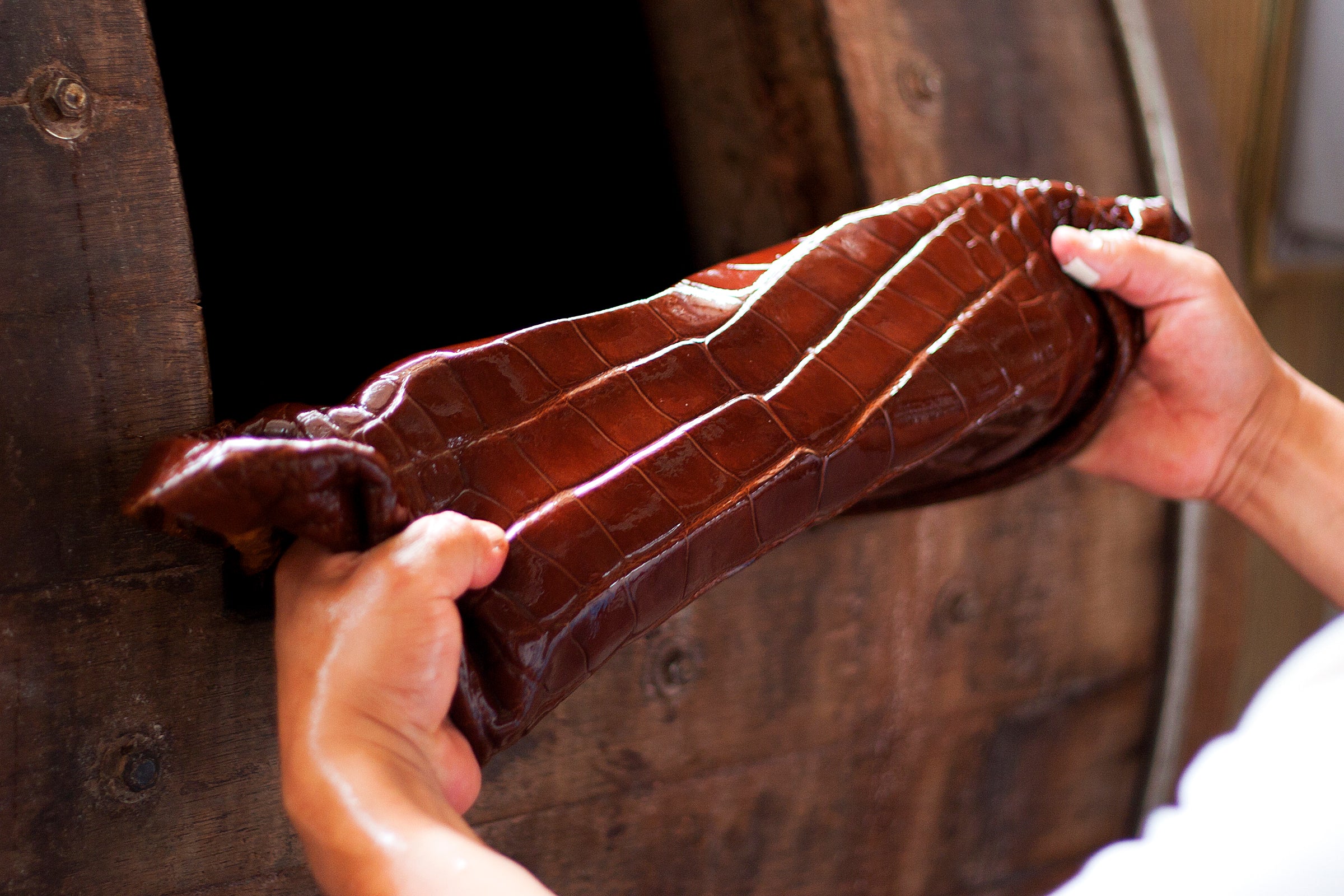
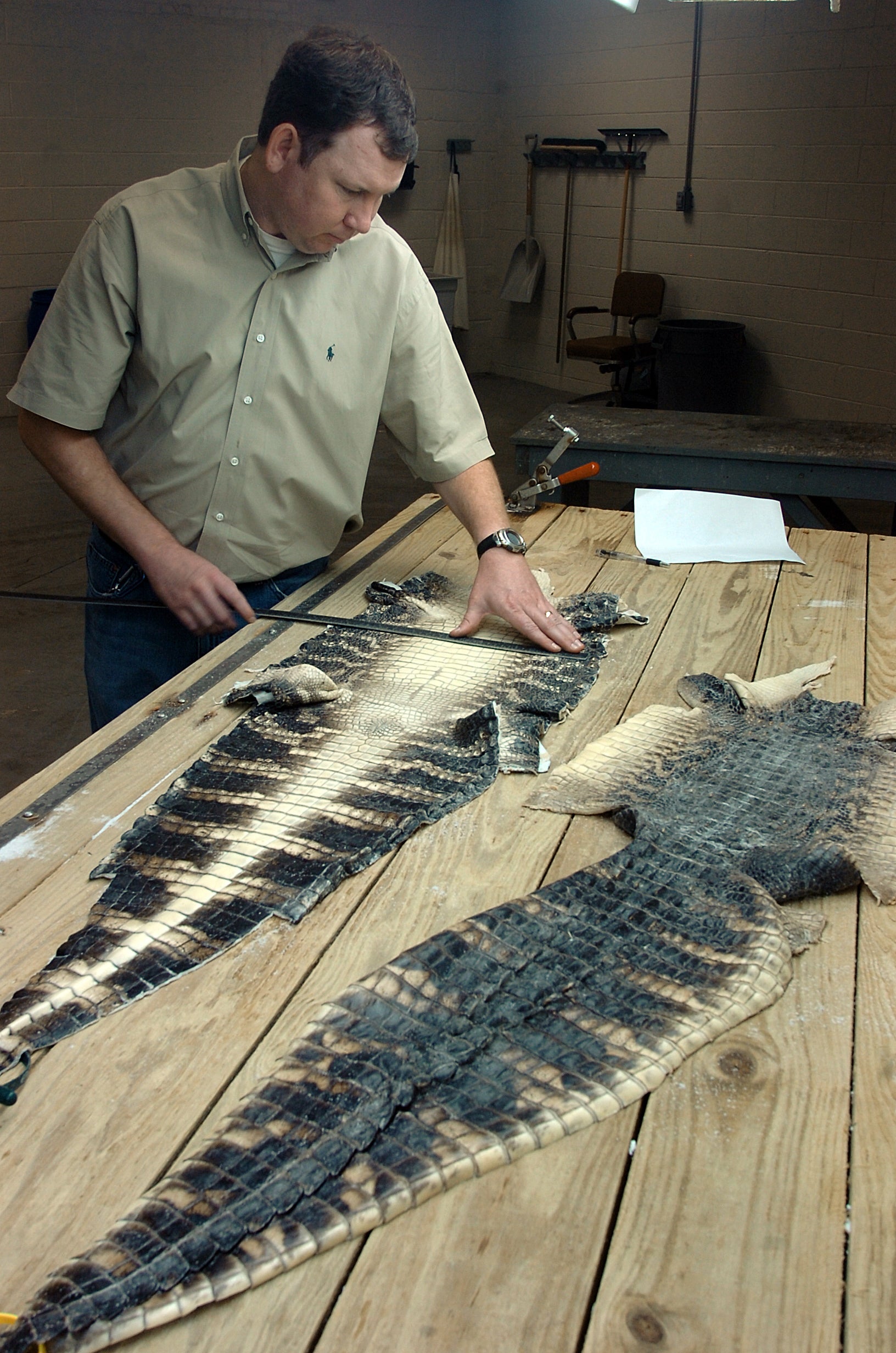
Collapsible content
What is a CITES tag?
A requirement derived from CITES is the tagging of all harvested alligators. This tag serves as a serialized identification to state, federal, and international bodies in order to show that skins were legally harvested.
The tag on each alligator contains the country of origin: US CITES
It also contains the state from which the skin came: LA
The year of harvest is included: 16
Finally, the serial number of the skin: 653728
State and federal tagging requirements
Upon harvest, each alligator is tagged with a government issued CITES tag by the hunter or farmer. This tag remains attached to the alligator skin, even throughout the tanning process, and can be removed when the skin is produced into a product like bag or a belt. The original tag number must be referenced when and if the skin or product is exported from the United States or moved from country to country.
What is a CITES permit?
A CITES permit is a legal document which allows the sale of CITES specimen abroad. A CITES permit is shipment specific, meaning it is only valid once. An exporter must list the exact tag numbers for the alligators being exported and the importer must also be listed on the permit. Alligator skins or products may not leave the USA or any other county without a CITES permit.
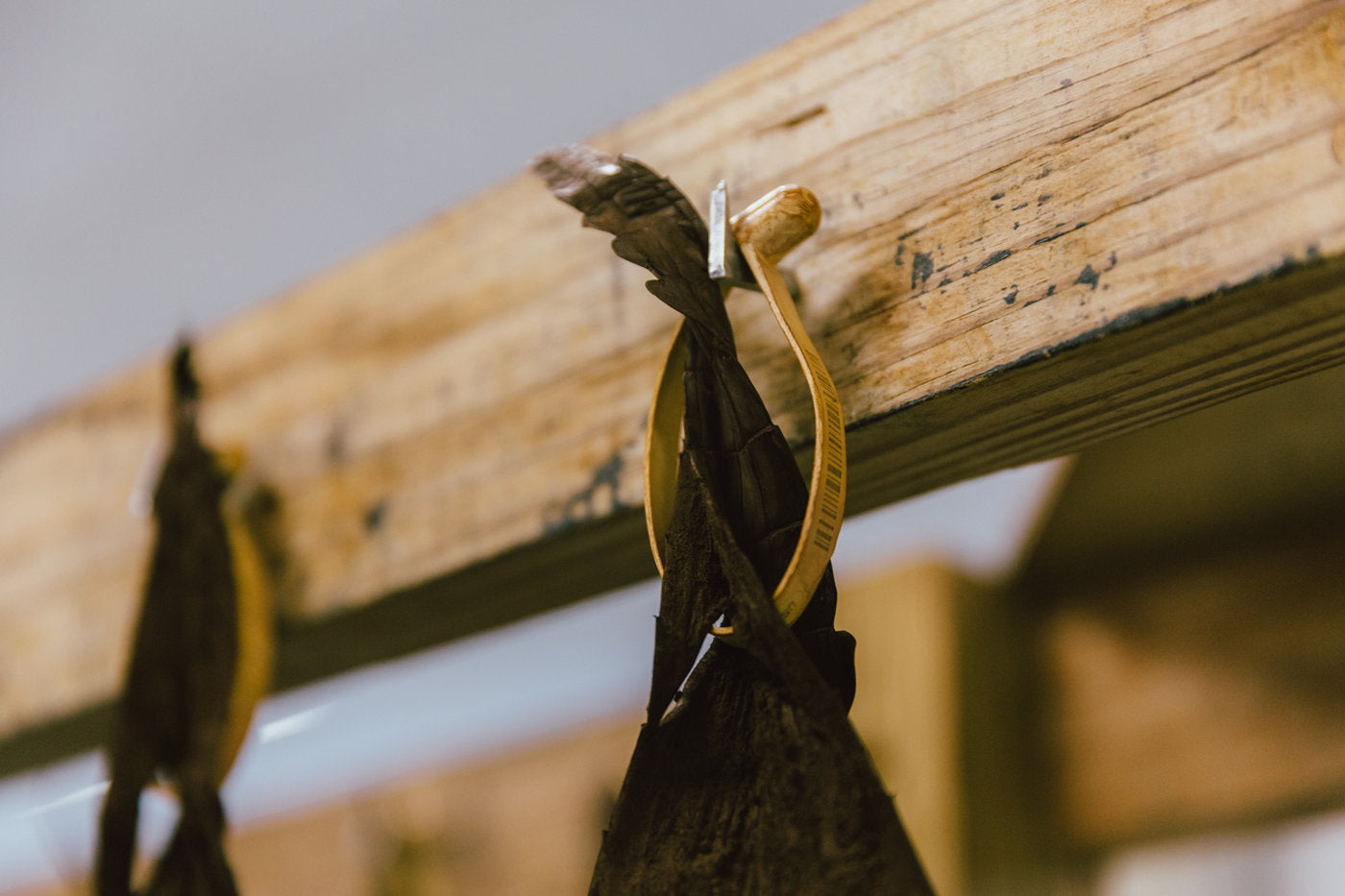
AMTAN Quality
Over the years, tremendous time, money, and effort have been invested in perfecting the difficult process of tanning reptile skins. The finished product requires over two dozen separate operations, taking in excess of ninety days from start to completion. The proprietary processes currently used by AMTAN are the result of the evolution of nearly 40 years of carefully crafted tanning formulas.
